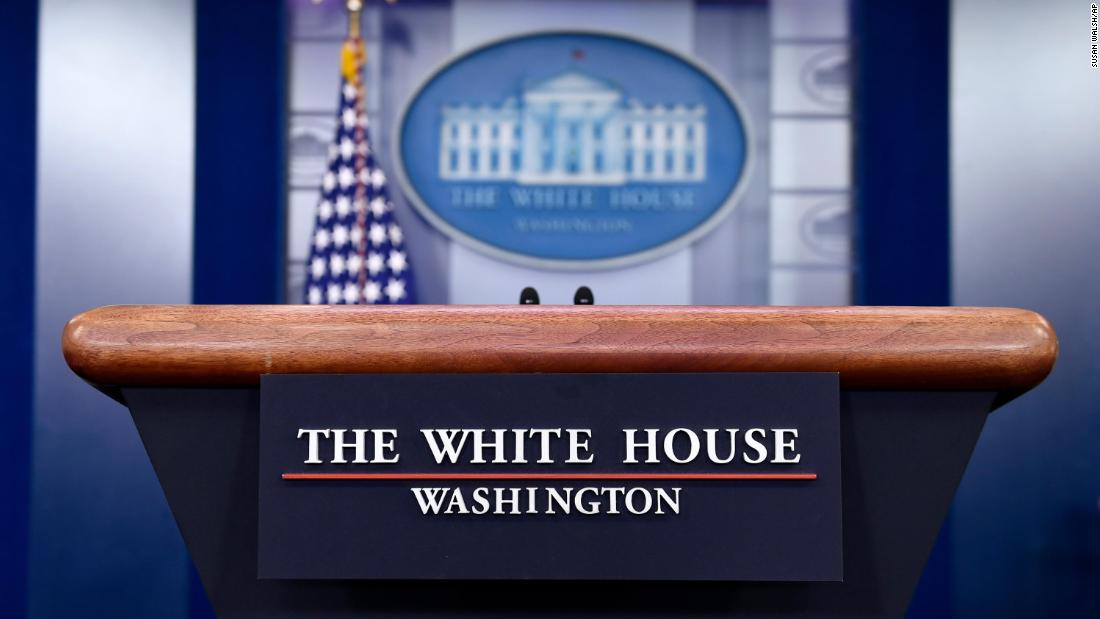[ad_1]
We believed that regular briefings were good for the American people, important for the administrations we served, and critical for the governing of our great country.
We’d like to share what we mean by that. In any great democracy, an informed public strengthens the nation. The public has a right to know what its government is doing, and the government has a duty to explain what it is doing.
For the president and the administration this is a matter of both self-interest and national interest. The presidents we served believed a better-informed public would be more supportive of the president’s policy and political objectives.
And a well-informed citizenry would be better equipped to understand the difficult choices and decisions presidents must make, especially in times of crisis and challenge. Bringing the American people in on the process, early and often, makes for better democracy.
An informed press corps strengthens our ability to govern. Yes, presidents are now able to communicate directly via the internet, social media and tweets. But most Americans will learn about the work of the White House in the reports they see, read, and hear in what we collectively call “the press.”
The press will report a story to the best of their ability whether they are briefed by the administration or not. But regular briefings generally lead to better and more responsible reporting.
The process of preparing for regular briefings makes the government run better. The sharing of information, known as official guidance, among government officials and agencies helps ensure that an administration speaks with one voice, telling one story, however compelling it might be.
Regular briefings also force a certain discipline on government decision making. Knowing there are briefings scheduled is a powerful incentive for administration officials to complete a policy process on time. Put another way, no presidents want their briefers to say, day after day, we haven’t figured that one out yet.
In times of military conflict and international crisis, these briefings take on even more importance. Americans want to know the latest developments and seek the truth. On social media, wild rumors can fly, and our adversaries can manipulate disinformation to their advantage. This is now well documented.
For that reason, among many, the country needs trusted sources of information delivered on a timely and regular schedule. That is the fundamental responsibility of people who serve as spokesmen and women for presidents, cabinet secretaries and other high-ranking government officials.
These briefings also have the great benefit of communicating among our soldiers and diplomats around the world who are hungry for information. Talk to any military family here at home or a family with diplomats serving overseas and they will tell you how much their loved ones rely on regular information, whether the news is good or bad.
Using the powerful podiums of the State Department, Pentagon and White House is a powerful tool for keeping our allies informed and letting our enemies know we are united in our determination to defeat them both on the battlefield and in the world of public diplomacy.
The media world has changed radically since the last major war in the Middle East. We have many more tools of public diplomacy to demonstrate our military resolve both at home and abroad. But as powerful as those new tools are, they do not bring the same force of power, both soft and hard, that officials of the United States government need.
Credible men and women, standing in front of those iconic backgrounds at the White House, State Department and Pentagon, are essential to the work the United States must do in the world.
We respectfully urge the resumption of regular press briefings across our government, especially in the places where Americans want the truth, our allies in the world want information, and where all of us, hopefully, want to see American values reflected.
Signed,
Ambassador Richard Boucher, former spokesman and Assistant Secretary of State (administrations of George H. W. Bush, Bill Clinton and George W. Bush)
Ambassador Nicholas Burns, former State Department spokesman (George H.W. Bush, Bill Clinton, George W. Bush)
Jay Carney, former White House press secretary (Barack Obama)
Victoria Clarke, Assistant Secretary of Defense for public affairs (George W. Bush)
Robert Gibbs, former White House press secretary (Barack Obama)
Adm. John Kirby, former Assistant Secretary of State, former Pentagon press secretary (Barack Obama); Kirby is a CNN analyst.
Joe Lockhart, former White House press secretary (Bill Clinton); Lockhart is a CNN political commentator.
George Little, former Assistant to the Secretary of Defense for public affairs (Barack Obama)
Scott McClellan, former White House press secretary (George W. Bush)
Michael McCurry, former White House press secretary and State Department spokesman (Bill Clinton)
Dee Dee Myers, former White House press secretary (Bill Clinton)
Jen Psaki, former State Department spokeswoman and White House communications director (Barack Obama); Psaki is a CNN political commentator.
Jake Siewert, former White House press secretary (Bill Clinton)
[ad_2]
Source link


